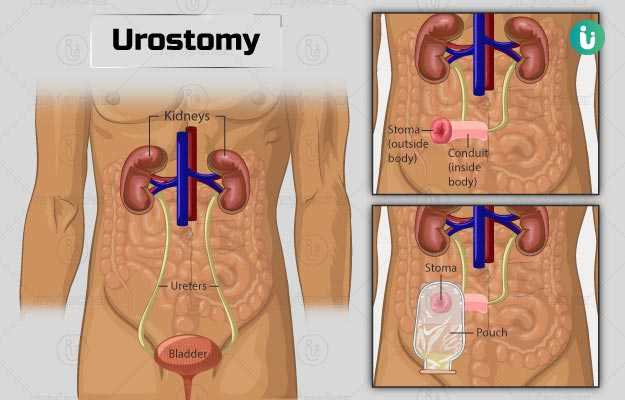Summary
Urostomy is a surgical procedure that is done to create an opening (known as a stoma) in the belly for draining out urine from the bladder. This surgery is performed if your bladder is affected by diseases/infections or is not functioning properly. You will be undergoing diagnostic tests and physical examination before the procedure. The doctor will also ask you to fast from midnight until the completion of surgery. During the procedure, you will put under general anaesthesia so that you are asleep during surgery. Proper care is required after the surgery to keep the skin around the stoma clean and dry.






































